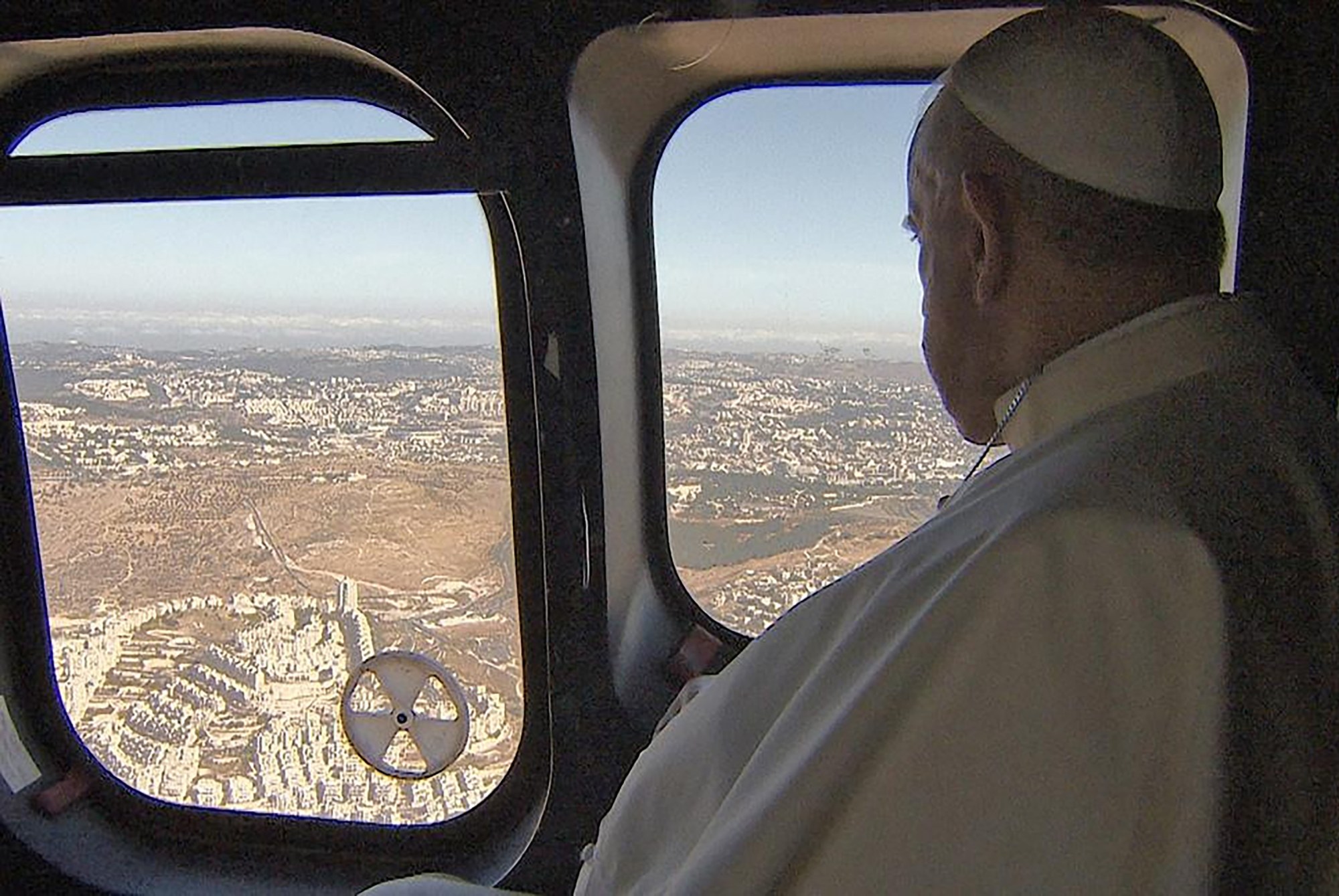
- Film
Docs: “In Viaggio” Offers Up Reflection on World Events Through Travels of Pope Francis
In conversation with strangers, politics and religion are generally seen as so-called “third rails.” In cinema, too, religion is often viewed as verboten terrain — a self-limiting topic that should be avoided in order to effectively communicate with a broader audience. The lens of religious faith can also be a useful and illuminating way to examine different social climates and mechanisms for common betterment. Proof of this arrives in the form of the documentary In Viaggio: The Travels of Pope Francis, a meditative rumination on the unique intersection of current events and the highest religious conviction. It will be released in theaters and across VOD platforms on March 31st via Magnolia Pictures.
Directed by Oscar-nominated Italian-American filmmaker Gianfranco Rosi, In Viaggio eschews narration or any talking-head interviewees. Instead – not unlike last year’s The Princess, a collagist work that asked viewers to consider a new frame by which to judge the life of Princess Diana of Wales – Rosi’s new film unfolds as an act of delicately assembled portraiture. It blends archival materials with footage shot by Rosi himself. The end result is an act of cinematic dialogue, effectively threading the needle between religiosity and secularism.
In the nine years of his pontificate, Pope Francis has made 37 international trips, visiting 53 countries and speaking out frequently on the five issues that he has described as the most important to him: solidarity, dignity, poverty, the worldwide migration crisis, and the condemnation of all wars. In Viaggio is culled from over 500 hours of material spotlighting these journeys.
By focusing solely on footage and moments during travel, Rosi reveals Francis as a man, and not just the pontiff — his intellectual curiosity commingled with spiritual searching and deep reservoirs of empathy. The film’s balance of archival footage, a few news clips, and new material (Rosi accompanied Pope Francis on trips to Malta and Canada) give it a healthy sense of balanced personality. It’s never too close to its subject, never too removed.
Viewers see Pope Francis visiting Rio de Janeiro for World Youth Day, attending the Jubilee of Mercy in Mexico, and exhorting a throng of young Cubans to be open to great things.
Later, Pope Francis convenes with Native American community leaders in Canada, apologizing for abuses at Catholic-run boarding schools for indigenous children. Reflecting on the “necessary pain” of the visit, he says, “Today I am here to remember the past with you. The place where we are meeting makes resound within me a cry of pain, a muffled scream that has been with me in recent months.”
This moment connects heartily. Meanwhile, the significance of other footage, like Pope Francis’ 2016 meeting with Patriarch Kirill of Moscow, the leader of the Russian Orthodox Church, will mean little to those who haven’t recently read up on the Great Schism of 1054.
Still, In Viaggio succeeds in giving absorbing form to philosophical leanings, and the better angels of our nature. The idea of nurturing dignity can be a somewhat abstract concept, but Rosi’s film breathes life into it. Speaking slowly and deliberately, Pope Francis talks about a world that has largely forgotten how to share suffering and makes pleas for a culture of solidarity instead of a culture of egotism.
He also talks about the value of listening and a sense of informed spontaneity in his decision-making — the latter coming after absorbing different perspectives and praying over what action to take. And despite notions of papal infallibility, In Viaggio shows Pope Francis apologizing as a man, both for the Catholic Church’s historical crimes and sins in the serial sexual abuse of minors but also for specific incidents of malapropism, as when he awkwardly defends a Chilean bishop, Juan Barros, swept up in a scandal.
Rosi (Fire at Sea, Notturno) sometimes trades in evocative framing. Looking out the window of the pope’s plane we see fighter jets. At one point, a gun barrel lingers in the corner of a frame, as a member of a local security detail stands vigil in advance of the pope’s arrival. In one clip, as Pope Francis urges a crowd of parishioners to dream of a world that cannot yet be seen but will surely come, Rosi juxtaposes his words over a shot of Earth from outer space. There are also some interesting point-of-view shots from the so-called “Popemobile.”
The heady lessons and humanistic perspective of In Viaggio need not find purchase with only Catholic viewers. In not so much inveighing against war as seeking to shine a light on destructive patterns of human thought that prevent us from gazing beyond the idea of ever needing to resolve conflict through violent means, Pope Francis aims to illuminate all consciousnesses. His words are an appeal to the “seed of the absolute” that pulses within all of us, regardless of individual religious belief.

